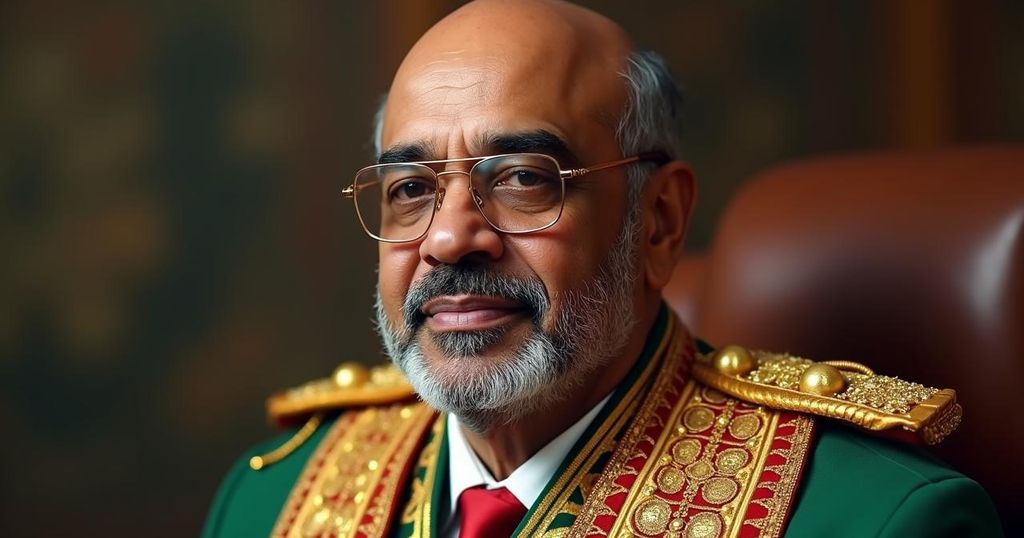Omar al-Bashir, born in 1944, is a former Sudanese military officer who seized power in a coup in 1989, ruling as president until his ouster in 2019. His tenure was marked by authoritarian policies, civil conflict, and international charges of war crimes, notably during the Darfur crisis. Al-Bashir’s rule ended amidst large-scale protests demanding governance reforms, leading to his arrest and prosecution for corruption and human rights violations.
Omar Hassan Ahmad al-Bashir, born on January 7, 1944, in Hosh Wad Banaqa, Sudan, is a notable military officer who instigated a coup that overthrew Sudan’s elected government in 1989. He served as the president of Sudan from 1993 until he was deposed in a military coup in 2019. Al-Bashir was raised in a peasant family and received his education in Khartoum before joining the army. He attended a military college in Cairo and fought against Israel in the 1973 war. As he rose through the military ranks, he took command in the 1980s against the Sudanese People’s Liberation Army during a civil conflict. In 1989, dissatisfied with the existing government, al-Bashir led a successful coup and became the leader of the Revolutionary Command Council for National Salvation. His regime quickly dissolved parliament, banned political parties, and imposed press restrictions. Al-Bashir initiated a program to Islamize the country, formally introducing Islamic law in 1991, which intensified divisions between northern and southern Sudan. In 1993, he assumed the presidency after dissolving the Revolutionary Council and was officially elected in 1996. Although he lifted the political party ban in 1998, al-Bashir’s rule became increasingly authoritarian. In 2005, he signed a peace agreement with southern rebels amid a protracted civil war, which subsequently led to South Sudan’s independence in 2011. His presidency faced international scrutiny due to the Darfur conflict that began in 2003, where he supported the Janjaweed militia against rebel groups, resulting in widespread civilian atrocities. This prompted the International Criminal Court (ICC) to issue arrest warrants against him for war crimes and genocide, marking a historic move against a sitting head of state. Al-Bashir remained in power until 2019 amid an economic crisis and rising public discontent, culminating in mass protests demanding his resignation. After declaring a state of emergency and enacting reforms, he continued to resist calls for resignation. However, on April 11, 2019, he was ousted in a military coup and subsequently arrested. He faced numerous charges post-coup, including corruption and his involvement in the violent suppression of protests. In December 2019, he was sentenced to two years in a reform facility before facing additional trials related to the coup that brought him to power and related corruption charges in subsequent years.
Omar al-Bashir’s presidency was characterized by significant political turmoil, humanitarian crises, and persistent conflict in Sudan. Rising from humble beginnings, he utilized his military background to seize power and maintain control through authoritarian governance. His approach to the southern conflict and the civil unrest in Darfur has led to international denunciation and actions from institutions like the ICC, which have been pivotal in his international standing. The societal pressures and economic struggles faced by Sudanese citizens ultimately precipitated his downfall, leading to significant changes within the country’s political landscape in 2019.
In summary, Omar al-Bashir’s long rule over Sudan was marked by military authority, economic challenges, internal conflict, and international backlash due to human rights abuses. His presidency ended amid widespread protests and a military coup, followed by legal repercussions for his actions during his regime. These events reflect both the complex history of modern Sudan and the ongoing struggle for political and social stability in the region.
Original Source: www.britannica.com







